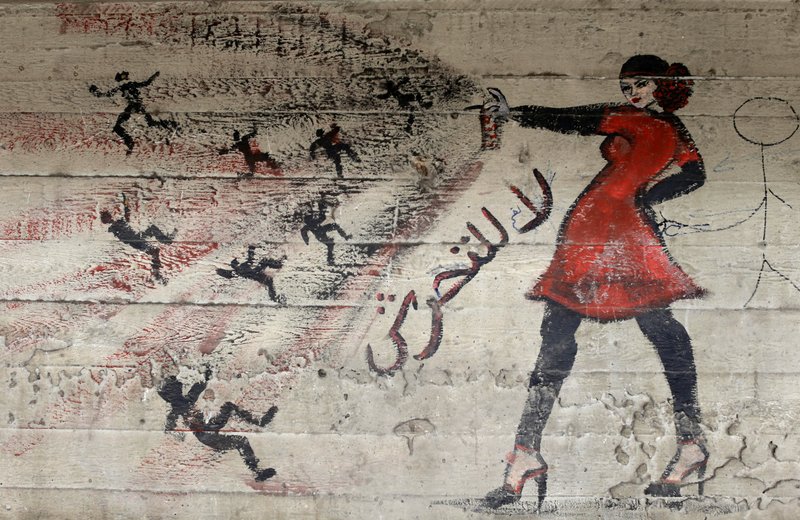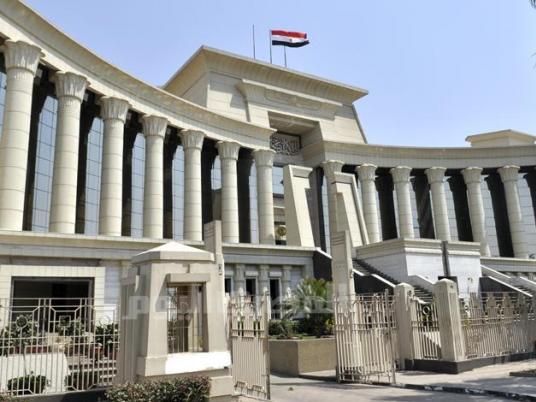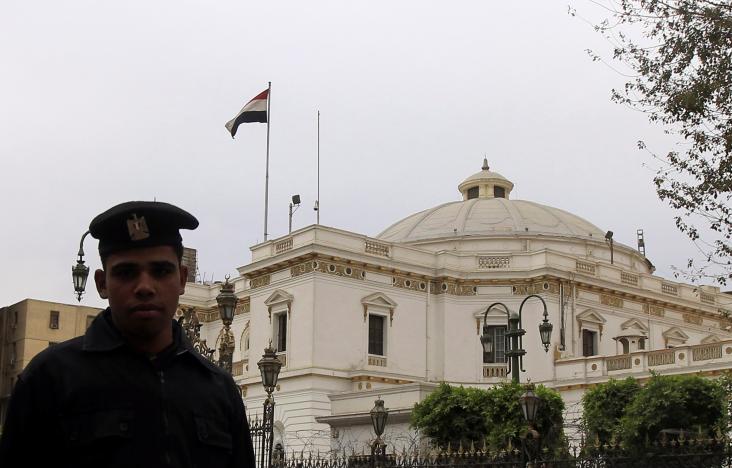Solid-waste management is the system for controlling, handling and disposing of solid waste to reduce it to the smallest volume possible.
There is no comprehensive solid-waste management system in Egypt. Cairo used to benefit from a sustainable and environmentally-friendly system of garbage collection and sorting by traditional trash collectors, the Zabaleen. Even though the Zabaleen‘s garbage collecting did not cover all of Cairo, the system evolved through the support of civil society in an attempt to become a nationally comprehensive trash collecting system.
But last May, a government decision to cull pigs in an attempt to curb the swine flu pandemic resulted in the destruction of this sustainable garbage cycle, a cycle in which pigs would consume organic waste and turn it into manure used for compost. Despite the current turmoil, the zabaleen garbage collection system is proof that an efficient solid-waste management system can be established through small-scale initiatives. Some other small-scale initiatives have been put in place through NGOs in an attempt to eventually arrive at a comprehensive strategy to deal with solid waste through easily-replicable models.
One such initiative was launched in 1999. Emad Adly, the head of the Arab Office for Youth and Environment (AOYE), established a "sorting at the source" project on the premises of Helwan University. “We designed, produced and disseminated bins of various colours in the University so that students would integrate the simple reflex of throwing food in one bin and non-food in a different one,” Adly recalls.
In order to make this waste management system sustainable, AOYE collected the sorted garbage from the university and delivered it to a recycling plant in Bassatine, where the garbage was sorted one more time.
"Originally, this sorting at the source initiative was supposed to last one year only," Adly explains. "It was a pioneer project supposed to set an example for a viable solid waste management system.” After 11 years, the project is still running at Helwan University, but it has failed to be replicated elsewhere–to the great disappointment of Adly.
“The cycle of solid waste management is not complicated, but it has a cost,” he says. “If you collect the trash, transfer it to a recycling plant and keep the place clean, all this involves expenses that the governorate does not seem eager to pay.”
A few years ago, Adly met with other university directors to extol the merits of the "sorting at the source" solution, in an attempt to export the system to other universities. “If all universities systematically adopted this model, we could have gradually reached an overall system,” he says. But in spite of several high-level discussions with the president of Ain Shams University, the project was never taken up.
Today, seven people from AOYE are involved in the initiative at Helwan University, with a monthly deficit of LE3000. “We do not have a culture of solid waste management in this country," sighs Adly. "We still see the outside of our homes and cars as a giant garbage bin.”
Far from Helwan University, the Hurghada Environmental Protection and Conservation Association (HEPCA), a Red Sea-based NGO, has also launched a comprehensive solid-waste management system for the past 45 days in Hadaba, a residential neighborhood of Hurghada.
Until recently, HEPCA was only concerned with the preservation of the seabed, local marine life and the coral reef. Two years ago, the NGO created a solid waste team in order to put an end to the threat of ubiquitous plastic bags on the local marine environment.
“The amount of plastic bags created by the booming tourism industry on the coastline posed an immediate threat to some species,”says HEPCA managing director Amr Ali. “In 2006, 70 percent of turtle deaths were due to suffocation from these plastic bags. We found that to be unacceptable.”
HEPCA chose to limit its action to the residential area of Hadaba and launched a major public awareness campaign to advertise the new system of solid waste management which they planned to implement.
“We started 45 days ago," says Ali. "We spent the first two weeks simply removing the huge heaps of garbage that had accumulated over the past three or four years.”
They removed preexisting garbage containers, provided new bins for each household and established a door-to-door garbage collection service twice a day. “Once all the Hadaba residents comply with the new system, we’ll introduce a sorting-at-the-source system,” Ali explains.
Delighted by the progress of the operation so far, Ali goes on to point out that, “from the beginning, the whole concept was to set a good example for the municipality, so that the system could be replicated in other areas.”
Indeed, HEPCA’s solid waste management system in Hadaba is not supposed to go on for more than a year. “We will leave the governorate to continue running this project when the year is over,” says Ali, adding that HEPCA has no plans to launch similar systems in other areas of Hurghada.
“We’re in full compliance with the Red Sea Governorate, which signed a protocol with us to protect the area," he says. "The governor also supports this initiative financially, so the cost does not fall only on the association.”
Another association, meanwhile, has created a special school in Manshiyet Nasser–dubbed the "Plastic Recycling School"–that similarly aims to address the problem of solid waste by providing education to young boys from the area. The school provides education to boys that dropped out of the formal educational system, financing itself by recycling shampoo bottles.
Originally founded by the Association for the Protection of the Environment (APE) in 2001 as a community school, the institution soon changed hands, and in 2004, the “Spirit of Youth Association for Environmental Services” took over operations.
Ezzat Naim Gambi, founder of the Spirit of Youth Association, explains that the whole idea of financing the school by collecting and shredding shampoo bottles first emerged in 2004.
“That year, Leila Iskander, chairperson of consulting company CID and APE board member, ran a study for a multinational shampoo company and discovered that 100,000 bottles of shampoo had been sold by the garbage collectors to people outside of the community,” says Ezzat. These bottles were refilled with lower quality shampoo and resold on the market, he explains.
“This is how we got the idea to make a deal with this multinational company and launch a system by which boys would be encouraged by way of small loans to bring these bottles to school and granulate them," Ezzat adds. "In exchange for this service, the company would give funding to the school to pay teachers and provide microcredit for the boys.”
For the year 2004-2005, multinational company Proctor and Gamble allocated LE130,000 to the school, with LE200 given to each boy as a form of microcredit. “The education the boys received in math and reading was done through the bottles, names, brands, numbers and grids they have to fill when they shred bottles,” adds Ezzat, noting that this integrated educational system had also served to develop the boys’ business skills.
In the year 2009 alone, 155 boys between the ages of nine and 18 years old collected some 275,000 shampoo bottles, which were then shredded with a machine at school.
“We received LE130,000 from Proctor and Gamble for that year, and we allocated LE30,000 of the overall sum to the teachers," says Ezzat.
Ezzat goes on to explain that, since last May and the general pauperisation of Manshiyet Nasr residents due to the pig slaughter, the waiting list for boys wanting to join the school has increased dramatically–forcing association members to put in place a system for selection.
While these initiatives vary in scope, they are all small-scale projects that can be easily replicated in other areas. All of them represent pioneers in the field of solid-waste management–the only thing left is for the government to take its cue, and implement them on a national scale.




